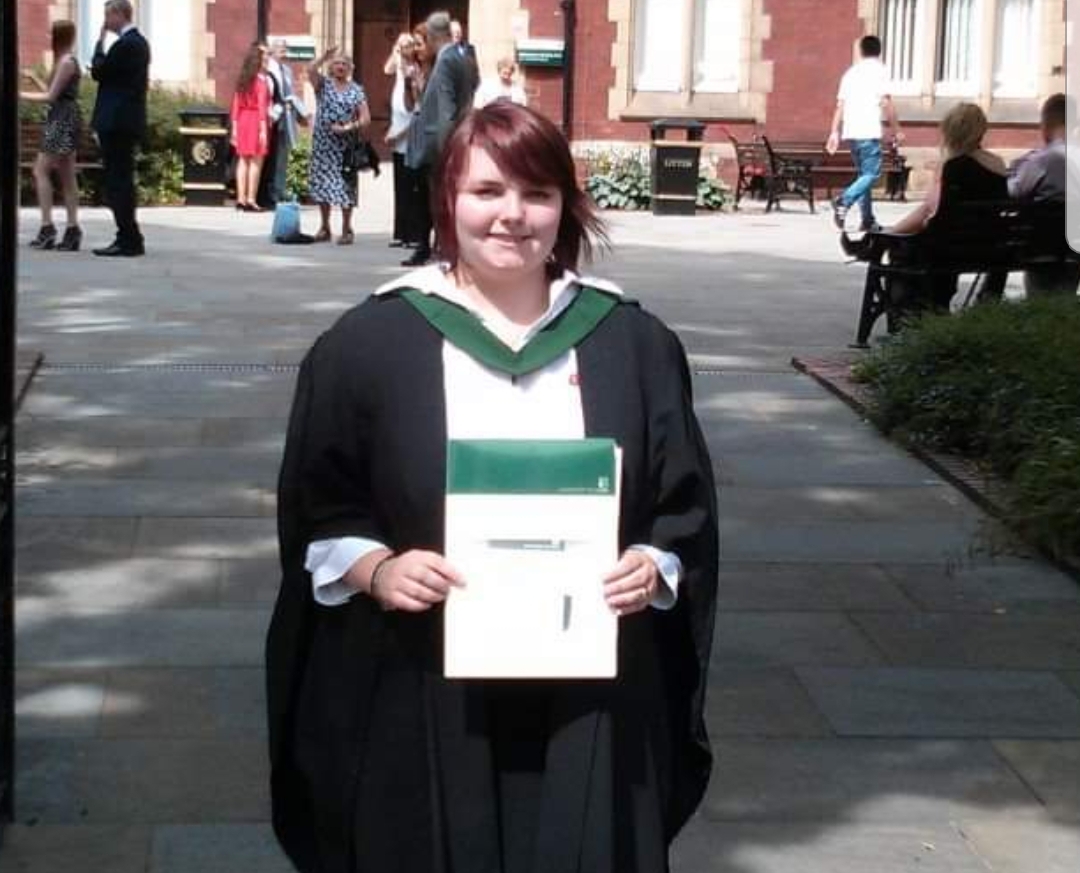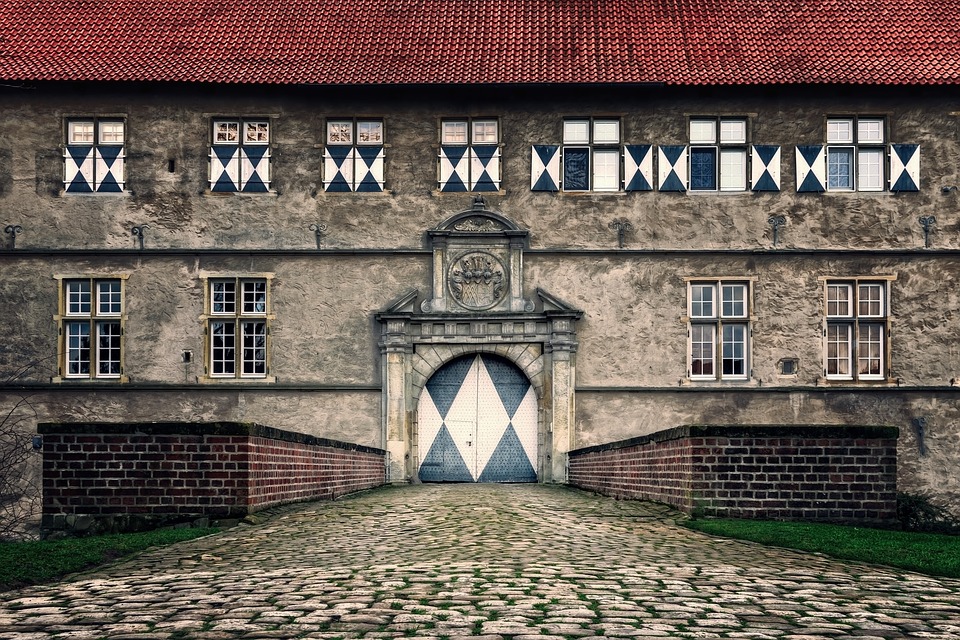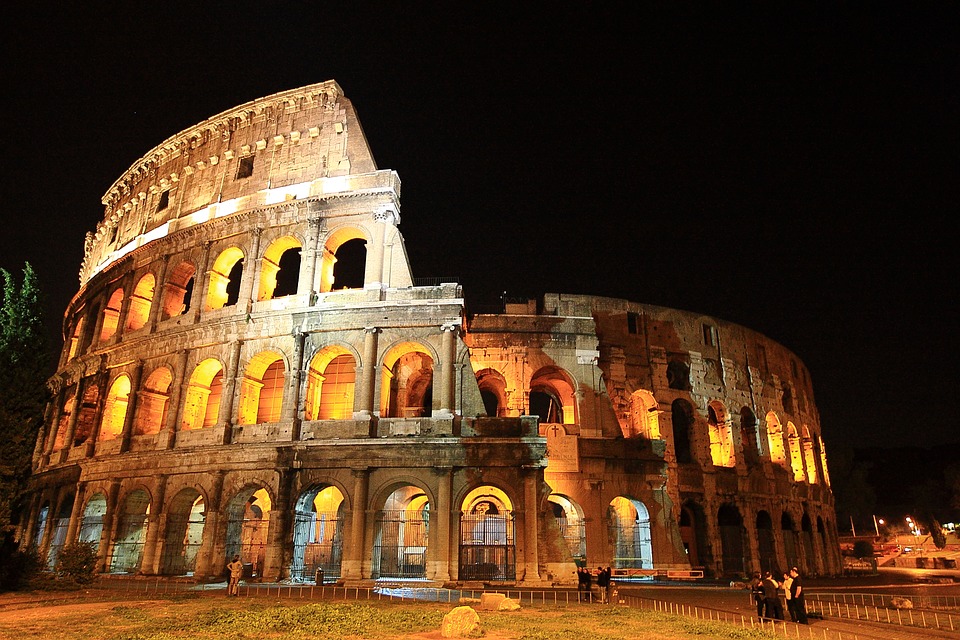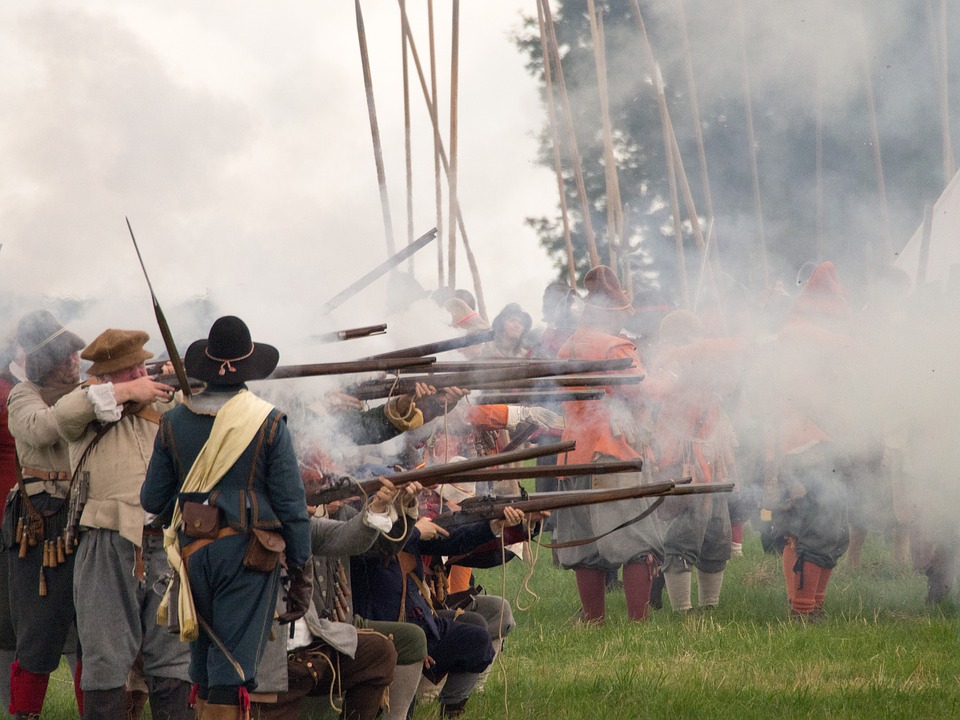Is Monty Python the Problem?
Hannah Gosling, MA student at Leeds Trinity University, talks to ERA about her passion for history… and why broadcast media plays a crucial part in lifelong learning.
“When people ask what I’m studying, I reply ‘History’ (though now it is MA Victorian Studies). The response I get back is very much the same: ‘What can you do with that? Be a historian…?’”
However, Hannah believes that studying history can provide you with many transferable skills such as data analysis, public speaking, and, as Hannah puts it, “thinking outside the box.” This is an apt turn of phrase, considering that we’re discussing the use of broadcast materials in the teaching of history.
“My passion for history began when I was a child,” Hannah says. “From being taken around museums with my mum, to reading about it in books and watching it on television with my dad. I was always fascinated by different cultures and histories.” As you can see, television helped Hannah connect with her subject, however, she does take some issue with the type of historical shows that we see on-screen. “Dramatic television re-enactments and dramatisations often compromise the accuracy of the history behind them, potentially presenting a more ‘romanticised’ aspect to the audience.”
“Nevertheless,” she concedes. “It is naïve on the audience’s behalf to say that they would believe everything that happens on the box.”

Yet Hannah is not the only one to be concerned about the historical accuracy of television and radio broadcasts. Richard Bradley, the Executive Producer of Horrible Histories, has previously said that it was his son Jack that prompted him to turn the best-selling series of books by Terry Deary into timeless TV. Deary apparently gave his blessing to the project as long as three rules were observed: the programmes had to be “horrible, funny and accurate.” This is a ruling that many teachers (and parents) remain ever-grateful for today, ten years on.
There are many depictions of whole periods in pop culture and media, however, that have often been found to be inaccurate – this is particularly true of the so-called ‘Dark Ages.’
When archaeologists and scientists from Sheffield University were called in to a dig at an Anglo-Saxon cemetery in Lincolnshire, what they found there was unexpectedly sophisticated. Exquisite jewellery, bags with ivory clasps and even tweezers turned up, and analysis of the remains proved that the people buried there had travelled to other parts of Britain.
One of the dig leaders, Dr High Willmott, said: “We have these impressions that people in the Dark Ages—it’s Monty Python that’s the problem—just chucked mud at each other.” It turns out that nothing could be further from the truth.

Stop the Roman banquets!
It is understandable then, that there are some historians that are opposed to any representations that might compromise historical accuracy. For instance, Mary Beard has previously said that she refuses to front documentaries featuring dramatic reconstructions.
During her Jocelyn Hay Lecture, she said that before signing up to any TV programmes, she made it a condition that there should be none of those scenes where actors dress up as Romans reclining at a banquet, not just because they were “excruciating”, but because “there are bigger historical and methodological issues at stake in my antipathy to it and issues that go right to the heart of the processes by which historical television opens up to the past to us, or obscure it.”
“She continued by saying: “Now it is often said that a re-con of this kind helps the viewer who may know nothing of the period to picture the historical scene. It helps them ‘get’ what a Roman banquet was like. Maybe I admit up to a point it does—it can show you that rich Romans sometimes had posh dinners lying down. But it does that at a great historical cost. Because it simply offers the viewer a version of the past that is ready-made, recreated for them.”
Instead, Mary believes that TV historians should empower their viewers to do this for themselves, to make their own, personal reconstructions, suing their own imaginations and the historical artifacts that are available to view.
Mary’s speech can be found in full here, along with details of the clips used to illustrate it.
Clips from her TV show, Meet the Romans with Mary Beard, can also be found by following this link here.

Forming our own image
But can ordinary people with a patchy and possibly already inaccurate idea of history have the ability to form their own reconstructions?
Even the National Curriculum produces huge gaps in the knowledge of young people leaving school and becoming active as democratic citizens. Understanding British history in its widest sense means having a better understanding of issues around the formation of the EU, the creation of the province of Northern Ireland, and also being aware of the consequences of the Empire, for example.
However, history is taught in schools as a separate academic subject and is often dropped after GCSE. As a result, most people do not have enough knowledge of past events and cultural references to be able to see the context of the major issues in the present day.
This is why Hannah argues that history needs to be understood by everyone and studied as a core subject—not just as part of the curriculum, but in terms of lifelong learning. “Only by understanding history from different perspectives can we gain insights into the attitudes, beliefs and realities of today,” she says.
“There are many aspects of our modern society which we take for granted and which we would value more if we understood how they had evolved,” she continues. “I think one of the most poignant examples is the women’s right to vote; all of us know about the Suffragettes, Emmeline Pankhurst, and we can recall that one was trampled by the king’s horse because she apparently jumped out in front of it. This is where the media’s role in presenting history is so valuable; Emily Davison has long been accused of ‘jumping out’ in front of the king’s horse in the 1913 derby. However, if you look at the footage taken from the day, she quite calmly walks forward and appears to try and grab the horse’s reins to stop it.”
“To quote Martin Luther King Jr, ‘we are not the makers of history. We are made by it.’ Fundamentally, this is true. And this idea can be communicated by the media to allow us to capture history, or a certain viewpoint or presentation of it, in a powerful and compelling way.”
“So, the media, and particularly audio and visual material, can act as witness to historical events and ensure that these are recorded accurately, but they still may be distorted by ‘spin’ or by the way that they are presented.”
For example, Hannah that thinks that there is a lack of understanding between history and media. She says that despite being proud of Britain’s ‘great’ history, we sometimes put the global community aside and ignore the multiculturalism that began in the UK long before the twentieth century.

Filling in the gaps
Does broadcast media fill the gap and provide some lifelong learning in history for viewers? Hannah agrees that is does to some extent, but leaves a lot to be desired.
There are some parts of history where gaps are filled in by fiction, simply because the voice of the person represented is silent. Andrea Levy’s award-winning novel, The Long Song, recently dramatised in a BBC production, was written to illuminate the lives of slaves. On the topic, Levy wrote:
“Their lives are part of British history. If history has kept them silent then we must conjure their voices ourselves and listen to their stories.”
But is it enough for programme-makers to simply make viewers aware of a period of time, a famous person, or even a single event which acted as a catalyst for change? Does this then sow a seed for further study or engender an interest in history which can be taken further? Recent episodes of Doctor Who have dealt with the Partition of India and Rosa Parks, but academics are generally divided on the issue of TV dramas and historical accuracy.
A Royal Television Society blog post discusses the way that historical dramas like Wolf Hall, The Tudors and The Great Fire ‘tweak’ what we know about the actual events and characters. David Starkey believed The Tudors to be a “deliberate perversion of fact.” Wolf Hall presented the supposedly (literally) saintly Thomas More as a cold-blooded sadist and Thomas Cromwell as its hero. But Wolf Hall was an adaptation of the award-winning novels by Hilary Mantel, and therefore not a straightforward historical drama.
Perhaps we need to remember that for historians, history is a discipline and an important part of our shared identity. Therefore, those representing it should do their utmost to ensure historical accuracy. On the other hand, for programme-makers, it is a product intended for consumers and consequently needs to entertain as well as inform—and perhaps entertainment takes precedence over accuracy!
On this, Hannah comments: “This is an argument that will never fully be settled, but historical drama is an opportunity for people to step through the door of history and to take their interest further if they wish to.”

